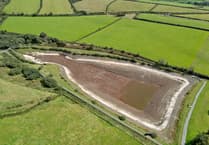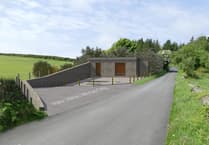Just under 90% of the island’s households still use gas or oil for central heating, according to statistics from last year’s census.
Around 50% use gas central heating, with 39.4% relying on oil.
Currently, only 5.8% have alternative energy technology, such as solar, wind or electric.
Isle of Man Climate Change Transformation Board chair Daphne Caine MHK said this is in line with the Climate Change Insights Survey 2021.
This indicated that 85% of residents use oil or gas for home heating, 60% were concerned about the environmental impact, and 73% were concerned about the costs of their energy use.
She added that this data gives the government an insight into what it needs to work on.
‘Reducing greenhouse gas emissions from home heating is one of the key areas that we will focus on in order to reach our net zero goal, as it currently accounts for 21% of our emissions,’ said Mrs Caine. ‘The Renewable Heating Scenarios Report 2021 delivered three high-level scenarios reflecting different technology mixes to decarbonise building heating in the Isle of Man.

‘It is key to note that prior to installing these new technologies, properties need to first improve their energy efficiency through measures, such as insulation, draught proofing or glazing.
‘More energy efficient buildings will not only immediately reduce emissions but can also increase comfort, tackle fuel poverty, reduce bills, improve health and add value to homes.
‘The Green Living Grant Scheme and Energy Efficiency Scheme are already supporting people to make improvements to property fabric and efficiency.’
Heat pumps was one of the most common types of alternative energy technology in homes, with 2.1% using them.
Mrs Caine continued: ‘Heat pumps are widely regarded as a key technology to reduce reliance on fossil fuel heating, and are heavily featured in the Renewable Heating Scenarios report.
‘In the UK, the Climate Change Committee expects heat pumps deployment will increase from 35,000 units per year to over £1 million per year in 2030. So, while current installation costs are high, it is expected that this will decrease in the coming years.
‘Heat pump systems are typically significantly cheaper to run, provided the home is properly insulated, as the majority of the heating energy is obtained from air or ground with electric only used to operate the system.’
Manx Utilities is currently running a heat pump trial across the island.
The MHK highlighted some of the other steps that are being taken to net zero, saying that the Climate Change Insights Survey 2021 found eight percent of people have an electric vehicle and 39% would consider buying one in the next five years.
‘The key factors when considering an electric vehicle are cost (of vehicle and of installing charging equipment at home) and availability of public charging points,’ she added. ‘Uptake of electric vehicles in the UK has increased, with 10.8% of all new car registrations being electric vehicles in the UK during April 2022. This will increase the availability of second hand cars to the Manx market making it an affordable option.’
Currently, 772 electric vehicles are registered in the Isle of Man – up by 34 since January 2022.
Mrs Caine explained that transport accounts for 24% of the island’s emissions, making it another area for reduction.
In the Climate Change Insights Survey 2021, almost three quarters of people say that they travel to work by driving their petrol or diesel car, and 60% of people who live in Douglas drive a fossil fuel car to work.
‘So whilst switching to an electric car may seem as a costly option right now, replacing travelling with fossil fuel cars with active travel, such as walking and cycling when possible, is advised,’ she said. ‘By choosing to walk or cycle you are helping to cut carbon emissions and reduce congestion and pollution. It also brings about a multitude of health and wellbeing benefits.’
More information on the various grants and schemes you can sign up to are on the government’s website and Net Zero Isle of Man.

.jpeg?width=209&height=140&crop=209:145,smart&quality=75)



Comments
This article has no comments yet. Be the first to leave a comment.